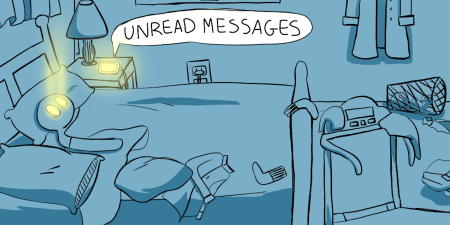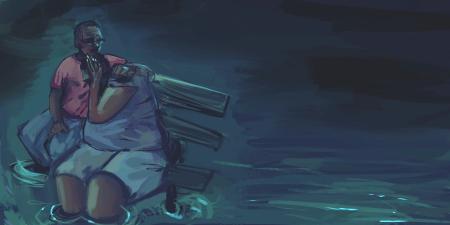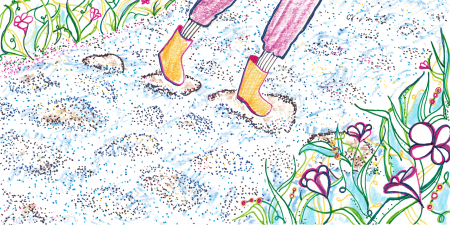Loneliness, in modern times, has evaded formal definition. Interrogation of loneliness in academic literature demonstrates a lack of consensus on what, exactly, it actually is. Is it an evolutionary vestigial state of neural hypervigilance,1 a literal experience of being too far from other people,2 a state of mind resulting from perceived deficits in social interaction,3 or something else? Despite this range of possible definitions, recent data suggest that loneliness is a shared experience, as 61% of Americans reported being lonely in 2020, compared to 54% in 2018.4 Associations of loneliness in aging populations with increased mortality and functional decline,5,6,7 together with increasing loneliness in younger people4,8 that potentially contributes to anxiety and depression in children and adolescents,9 should prompt our health care system to grapple with loneliness proactively as a key health determinant.
In this issue of the AMA Journal of Ethics, contributors not only make the case for viewing loneliness through multiple lenses by identifying how technology, culture, health care, and public policy influence experiences of loneliness, but also suggest possible interventions. The articles discuss implementing cultural brokering practices in the primary care setting for immigrant populations; consider how our built environment contributes to social isolation by prioritizing short-term financial benefit; and reflect on how artificial intelligence and the internet could both ameliorate and exacerbate loneliness in a society undergoing rapid technological change. The issue also calls attention to climate change as an unprecedented, powerful contributor to loneliness. Finally, the issue examines how health professions training can perpetuate loneliness by recognizing that trainees’ capacity to effectively consider effects of loneliness on their patients’ health requires that they acknowledge it in their own experience, too.
It is our hope that this issue will encourage conversations on experiences of loneliness that seem to be commonly and universally felt but infrequently explicitly acknowledged or discussed. These discussions might, perhaps, make us feel a little less lonely.
References
- Cacioppo JT, Cacioppo S, Boomsma DI. Evolutionary mechanisms for loneliness. Cogn Emotion. 2014;28(1):3-21.
-
Weiss RS. Loneliness: The Experience of Emotional and Social Isolation. MIT Press; 1973.
-
Perlman D, Peplau LA. Toward a social psychology of loneliness. Pers Relatsh. 1981;3:31-56.
-
Ipsos. Loneliness and the workplace: 2020 US report. Cigna; 2020. Accessed October 14, 2022. https://www.cigna.com/static/www-cigna-com/docs/about-us/newsroom/studies-and-reports/combatting-loneliness/cigna-2020-loneliness-report.pdf
- Perissinotto CM, Stijacic Cenzer I, Covinsky KE. Loneliness in older persons: a predictor of functional decline and death. Arch Intern Med. 2012;172(14):1078-1083.
- Luo Y, Hawkley LC, Waite LJ, Cacioppo JT. Loneliness, health, and mortality in old age: a national longitudinal study. Soc Sci Med. 2012;74(6):907-914.
- Patterson AC, Veenstra G. Loneliness and risk of mortality: a longitudinal investigation in Alameda County, California. Soc Sci Med. 2010;71(1):181-186.
-
Cigna 2018 US loneliness index. Cigna; 2018. Accessed October 14, 2022. https://www.cigna.com/assets/docs/newsroom/loneliness-survey-2018-updated-fact-sheet.pdf
- Meade J. Mental health effects of the COVID-19 pandemic on children and adolescents: a review of the current research. Pediatr Clin North Am. 2021;68(5):945-959.



